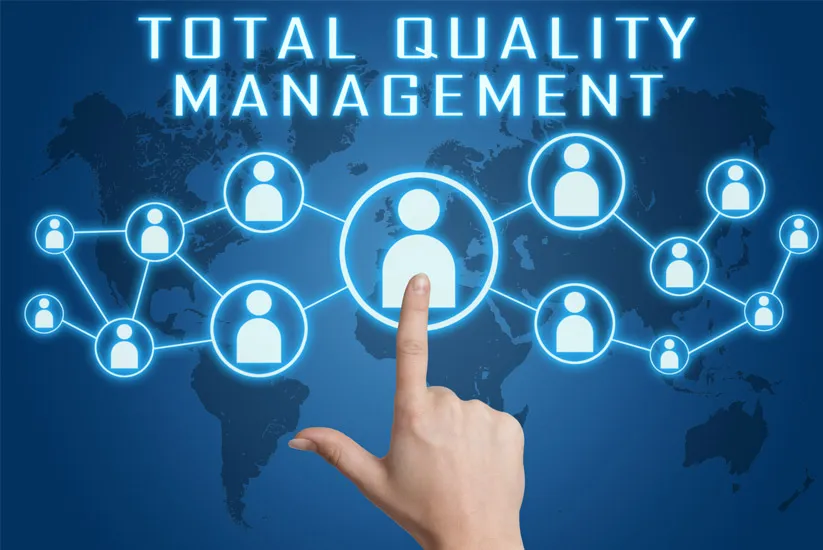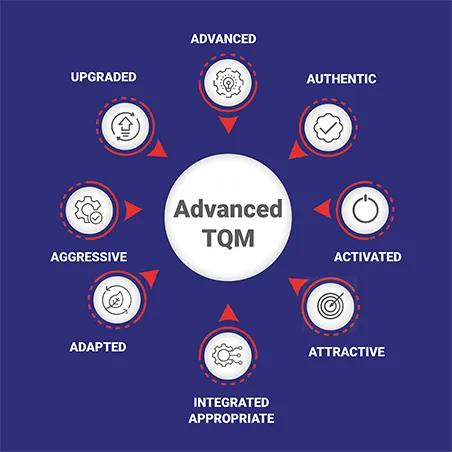
What You Need to Know About These Types of Analytics
September 21, 2021
Roadblocks to Successful Analytics Initiatives
October 19, 2021Experts Share Best Practices in Quality Management System Implementation
4 minutes ago3 min read1 person viewed1 person viewed Every company would want to deliver the best products or services to their customer and generate valuable returns from the proceedings. In the beginning, the quality of the deliverable is a key priority for all leaders as it has the potential to be a differentiating factor in the face of competition. However, as time progresses, the business may be subjected to numerous pressures and external scenarios that demand excessive attention from the leadership. Most of the companies, to show financial performance QoQ, focus on market growth, product improvement, and adoption., Typically, quality often gets a backseat which can ultimately prove to be very costly in the long term.
Quality management is an integral part of the journey that a business undertakes for succeeding in today’s highly competitive market conditions. By ensuring the deliverables offered by the company have higher standards of quality, the company can become more compliant with statutory and governmental regulations and also meet the expectations of consumers. However, in large sectors like manufacturing, as the size and scale of product complexity increases, quality management becomes even more challenging. Businesses need to thrive towards achieving reliable repeatability in their processes and production environment. To ensure this is achieved, the solution would be to drive more automation which can further be achieved by the implementation of a Quality Management System (QMS).
Globally, successful companies in different business domains recognise the importance of having a well-architected QMS within their enterprise operations. As more organisations gain this knowledge, the need for QMS will grow exponentially. In fact, studies predict that the global market size for QMS will reach USD 16.67 billion by 2028. However, one key challenge in the adoption of QMS is that there is limited knowledge on how to strategically implement a QMS within an organisation.
Let us have a brief look at some of the best practices that experts believe will help in successfully implementing a QMS for any organisation:
Create a Quality Policy
It is important to have a clear vision of what the business strives to achieve with quality management. It may be either awesome products or heightened customer satisfaction, sustainable innovation, or any combination of these or together. The policy needs to have well-defined objectives to which every employee can relate their job roles and responsibilities. This will help in creating metrics for measuring performance and progress across different levels towards an overall quality objective.
Evaluate your Current System
By carrying out an internal organisation-wide audit, you need to assess the present status of your processes, systems, and workflows. Before investing in a QMS solution and strategy, it is important to have a clear idea of what are the basic components within your organisation so that it will be easier to identify strengths and weaknesses.
Define a Sustainable Workflow
For a QMS to work efficiently it is important to ensure that there is a defined workflow order that interaction sequences happen within the enterprise. Mapping your process sequences and setting the order of movement of data, people and workflows between different departments and systems will ensure that at a later stage when a QMS takes over, it will work seamlessly
Document Specifications
Every technical, as well as functional objective of the quality policy, should be documented. Essential quality policies, business operational manuals, routine procedures, etc., should all be documented.
Set Defect Management Policies
It becomes important to have a well-defined roadmap to handle defects arising across any system. This will serve as a key reference for the QMS system implemented and will be used to determine the operational volume that is to be handled, methods to identify, capture and report defects, defect rectification and remedial measures to be followed for each incident, continuity plans to be executed for restoration of services.
Leverage a Reliable Technology Solution
Once you have an enterprise-wide quality framework that can drive efficient production from across departments, quality control can be seamlessly automated to ensure the elimination of any bias or human judgmental error. This is where investing in a reliable Quality Management System software can be beneficial. Evaluate a suitable solution based on its functional scope of coverage, customisable workflow management options, operational and computing requirements, systematic support channels and licensing options.
It is never a good option to underestimate the investment needed for quality management within any enterprise. As more business channels are increasingly being flooded with digital options, enabling sustainable innovation and quality offerings becomes an essential arsenal for businesses to match the competition. Ensuring that every stakeholder within the organisation is made aware and responsible for realising quality goals is vital to ensure a long-term strategic assurance for the quality of business.





